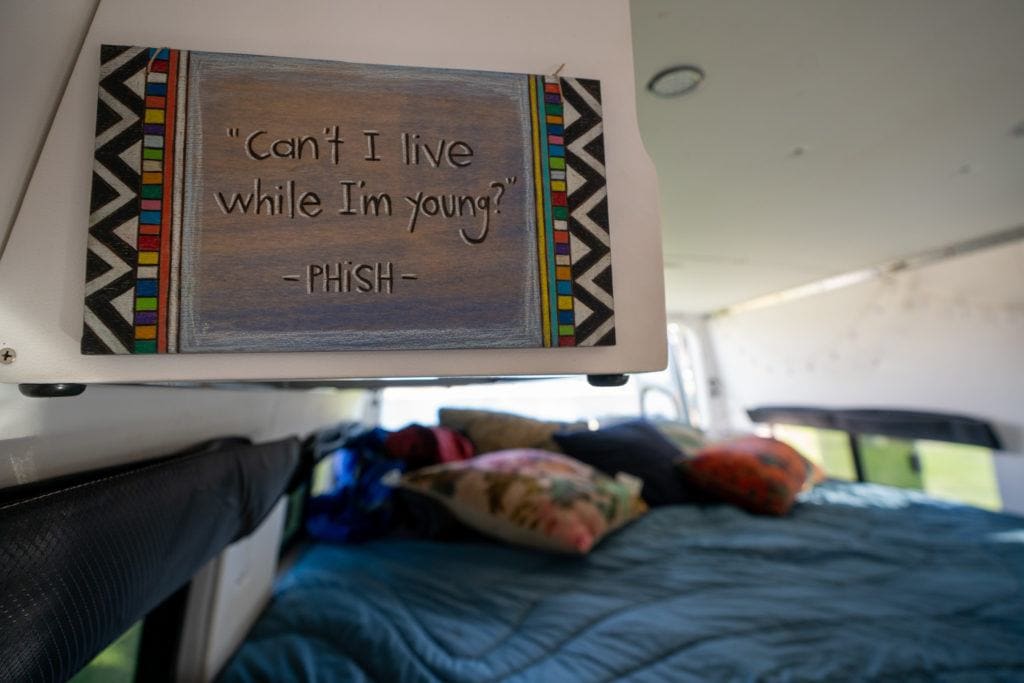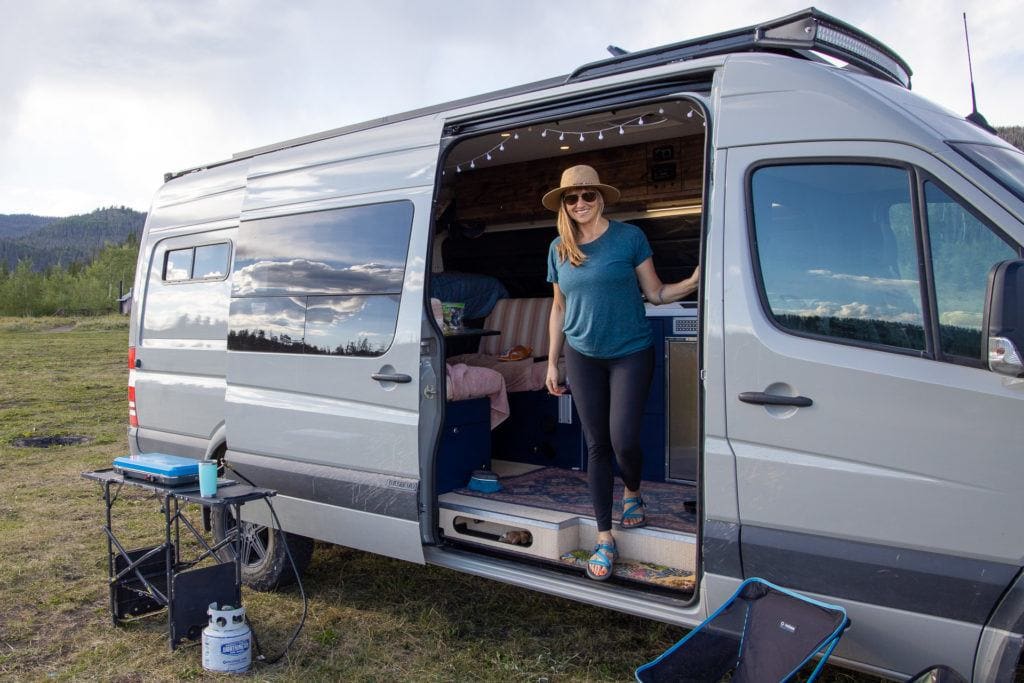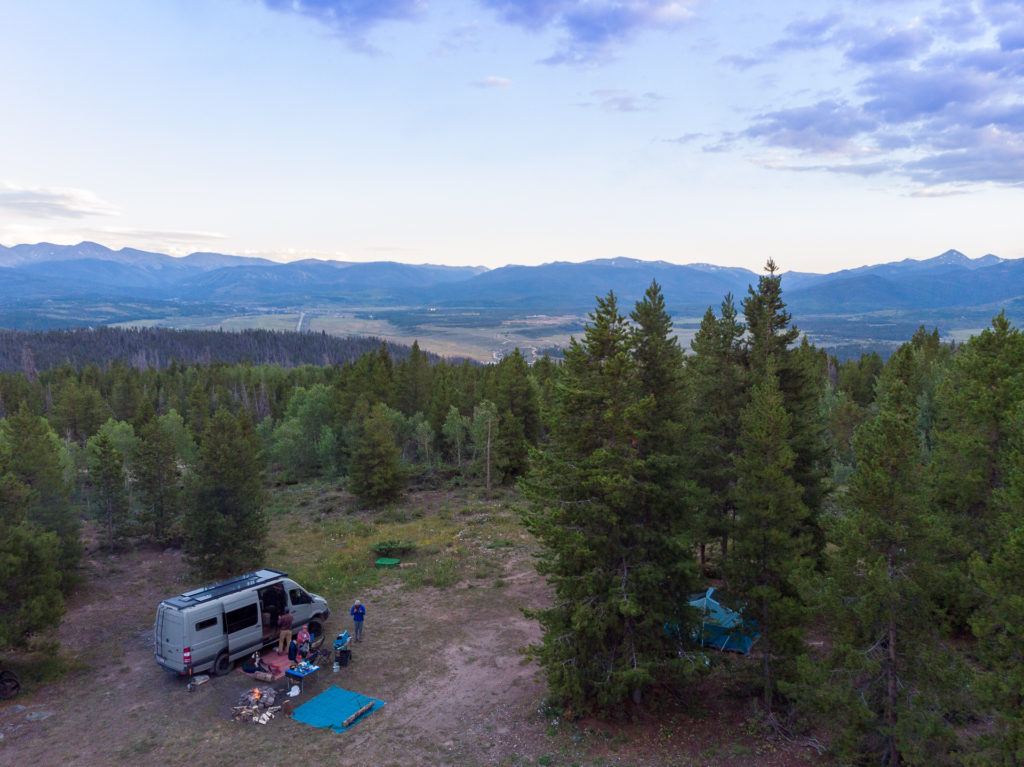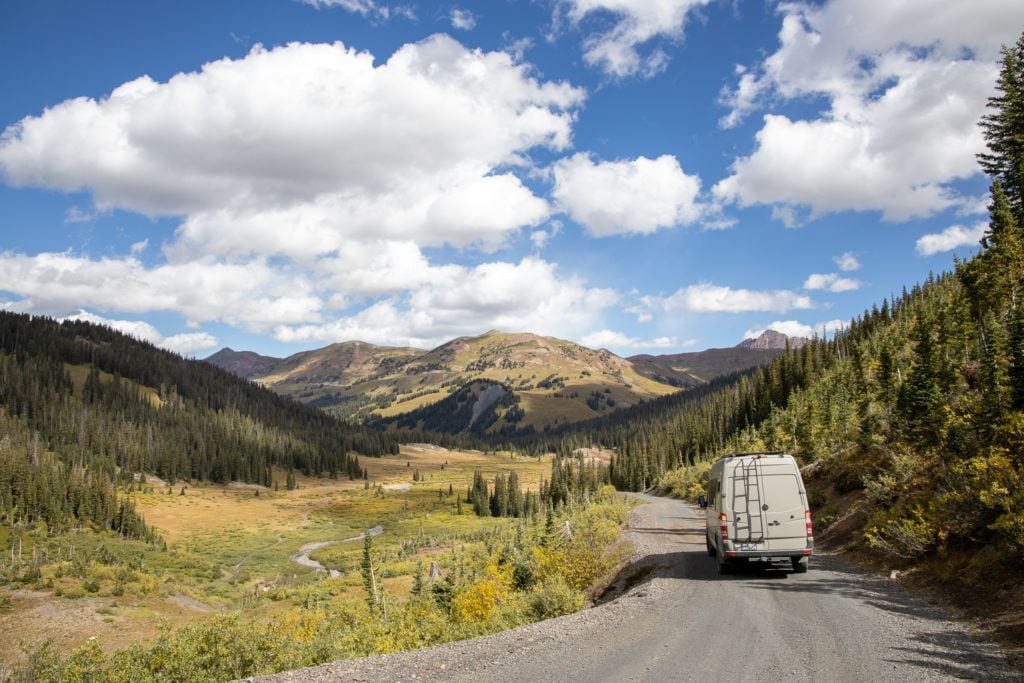Moving into a Van: Should you Store or Sell your Stuff?
What to do with those family heirlooms? Get tips for downsizing so your life on the road feels free.

In the last lesson, we talked about simplifying your habits and routines, but the big question remains about what to do with the rest of your stuff as your transition to van life. Should you put it all in storage? Sell it all? Or maybe rent your house furnished?
It might be a big shock once you start moving things from your house or apartment into the van; that’s normal, but between now and then, it’s smart to start narrowing in on what stuff you’ll want to bring along in the van for a couple reason. You’ll want to get an idea of:
- How much storage space you’ll need in the van
- What you can comfortably bring
- What you’ll do with the rest of your stuff
If you are moving out of a house or apartment and into a van, you obviously are going to be leaving some of your stuff behind.
In this lesson, I’m going to help you figure out what to do with all of that stuff. We’ll go over the pros and cons of putting it in storage vs keeping it. We’ll also talk about other big items to think about like your regular vehicle if you still have one and what to do about your house if you have one.

This post may contain affiliate links.
Go back to course homepage
What to do With Your Stuff
Getting rid of things can be difficult because we’re accustomed to having a lot of stuff around us, buying things when convenient, and gathering more stuff even when we don’t need it. I’m guilty of it myself, and if this sounds familiar, starting van life is the perfect opportunity to analyze the attachments you have to stuff and purge the things you no longer need.
When trying to determine whether to just sell everything you own before transitioning into van life or to get a storage unit, there are a number of questions you can ask yourself to help you make the decision.
- Do you plan to travel long term (more than a year)?
- Do you know if you’ll be returning to the same place once you’re finished traveling?
- Look at every item you have and consider: is it valuable? Sentimental? Historical? Irreplaceable? Why have I chosen to keep this for so long? Is this something I absolutely need or want?

Option 1: Put It In Storage
Some people choose to leave things in a storage facility, usually out of necessity or not feeling ready to let go of their stuff. And that’s ok. If you don’t know how long you want to do van life and you know you want to return to the same city when you are done, then a storage unit might make a lot of sense.
A storage unit also makes sense if you have furniture or larger sentimental items you love that can’t easily be replaced. Depending on where you live and the size of the storage unit, it could cost you anywhere from $50-200 a month or more. In order to keep your costs down, you’ll want to seriously think about whether everything headed to your storage unit is worth keeping.
Some things are important to keep safe, like documents, photos, letters, and portfolios for example. If these are the most important items you’re concerned about, consider digitizing them and keeping several copies on external hard drives and on Google Drive. A safe deposit box is a good option for important documents, jewelry, or small family heirlooms. You could also store these items at a friend or family member’s house that you trust.
Otherwise, sort through every item piece by piece and decide what can be sold, donated, given to friends, recycled, or thrown away. Then, do it again. Do it a third time if you need to. Invite a friend over that’s good at getting rid of things and solicit their help. After going through this process multiple times with a discerning eye, if you need to get a storage unit, get the smallest and least expensive one possible to cut down on cost and burden.
I’ve heard some stories where people weren’t ready to get rid of things or thought they’d be coming back sooner, so they stowed their stuff in a storage unit only to return later and realize they actually did not need or want what was in there. This actually happened to me with my first van. I moved out of my apartment, put all of my stuff in storage, only to find I didn’t want most of it when I got back to Salt Lake.
I’ve also heard of people who decided they actually wanted to move to a new city after exploring places they’d never been to.
Van life can be pretty powerful in changing your mindset about what you need to be happy. So don’t be surprised if you end up loving the simplicity of van life and feel differently about all that old stuff sitting in storage when you return.

Option 2: Keep It In Your House
A little later in this post, we’ll talk briefly about keeping vs selling your house if you own one, but when it comes to your stuff, if you plan to keep your house, you can always keep your things there. I still recommend going through the process we talked about earlier though and purging anything you no longer need and that doesn’t bring you joy.
You’ll probably come to find that after living minimally for a while, you don’t need everything you thought you did. This can result in feelings of stress and overwhelm upon your return. So, make it easier on your future self by cleaning out and minimizing before you transition to van life. It can be pretty shocking to return after months of minimal living and suddenly feel surrounded by a lot of stuff.
Option 3: Sell Your Stuff
Selling your stuff is a great idea if you’re considering moving somewhere else after your travels, if your stuff doesn’t hold much sentimental value, if it’s replaceable, or you plan to transition to full-time van life indefinitely.
Once you’ve gone through the sorting process and decided which items can be sold, list the items on Craigslist, Facebook Marketplace, LetGo app, and OfferUp app. Post flyers or host a garage sale. If you feel comfortable, share with people what you’re doing and why you’re inspired to travel in a van. Most people will be happy to support you, even if it means they just buy something small from you or tell their friends. Share your excitement and intention in minimizing your stuff.

Save this post!
Enter your email & I'll send this post to your inbox! You'll also receive my weekly newsletter full of helpful advice for planning your adventures.
What to Do With Your Car
The options for your car are the same as we’ve been discussing for the rest of your stuff: store it, keep it at home, or sell it. If you know you’ll be coming back regularly and will need a car, or if you’re only hitting the road for a few weeks or months at a time, keep it.
Cars don’t fare well sitting unused for long periods of time, so keep this in mind. Have a friend come over once a month to start it and drive it if they can. If you have a house with a garage or driveway where you can store it, that’s ideal. Otherwise, you’ll want to find somewhere that you can park it for as long a period of time as you need.
There are climate-controlled storage facilities that will store vehicles, but these tend to be costly over the long-term. If you’re committed to transitioning into full-time van life, consider selling your car and using the money for your van or the first few months of travel expenses while you’re transitioning to life on the road. Again, share with people why you’re selling your car if you go this route. If it’s not worth much, you could consider donating it to a good car donation charity that can pay it forward.
What to Do With Your House
The last section of this lesson is for those of you who own a home. If you own a home and can afford to keep it, consider renting it while you’re gone to ease some financial strain. You can find a long-term tenant to rent your entire house, or maybe a friend who rents a single room and can keep an eye on the place for you. That is what we’ve done for the last 3 years, and it worked out great. Sure we had to share our space, but we had someone to bring in the mail, look after the yard, and make sure there were no issues with our home while we were away.
Another option is to list your house on AirBnB and VRBO to help pay expenses. This mostly applies for part-time van lifers that would like the freedom to travel for extended periods but want a brick and mortar home to return to. If you plan to move into the van full-time but want to test the waters first, this is also a good option before making a commitment to full-time van life and selling your home. There are even agencies that can help you manage your rental if you don’t mind sharing a cut of the rental fee.
If you’d rather not rent out your house, ask a neighbor or friend to check in on it periodically and bring in the mail. This will bring some peace of mind while you’re away.

Explore more van life lessons in Module 3
- Lesson 1: Packing for Van Life
- Lesson 2: Simplifying Your Routine
- Lesson 3: What to do With All Your Stuff (current lesson)
- Lesson 4: RV Insurance
- Lesson 5: Health Insurance
- Lesson 6: Establishing Residency & Getting Mail
What daily routines are important to you as a van lifer? Share your questions, tips, and experiences down in the comments, and make sure to sign up for course updates here.

